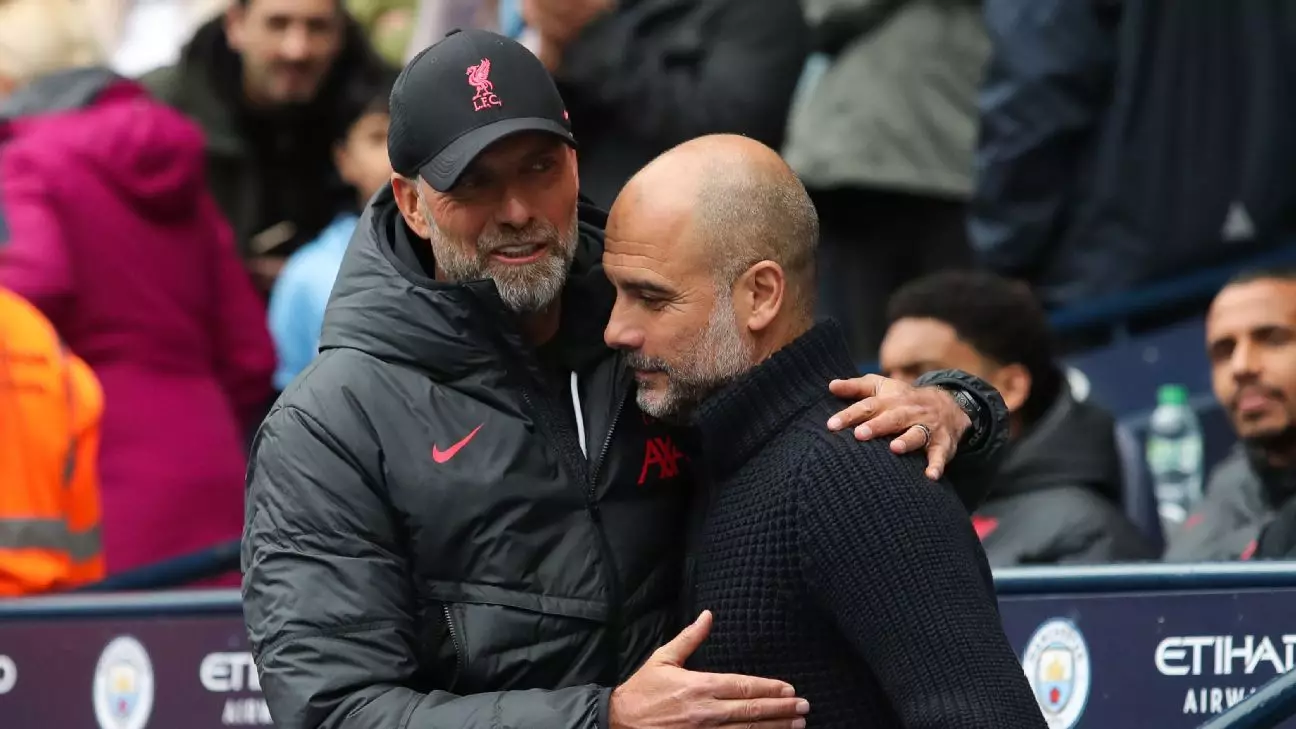In the world of professional football, controversies surrounding financial regulations often elicit a broad spectrum of reactions, particularly from rival clubs. Former Liverpool manager Jürgen Klopp, now at the helm of Red Bull’s global soccer operations, recently ignited a firestorm of discussion during a public appearance when he revealed his intrigue at the potential consequences for Manchester City. If the Premier League were to revoke titles from City due to alleged financial breaches, Klopp could envision celebrating this event with a jovial gathering on the sunny island of Mallorca. His comments offer a glimpse into the competitive worldview that fuels rivalries in English football and the broader ramifications of financial integrity in sports.
Klopp’s remarks stem from the Premier League’s referral of Manchester City to an independent commission over 115 purported violations of financial rules that date back to as far as 2009. Despite City’s steadfast denial of any misconduct, the situation remains fraught with uncertainty, and Klopp’s playful proposal of a party speaks to the emotions that lie at the heart of this developing narrative. Liverpool has felt the sting of City’s dominance firsthand, finishing as runners-up to them on two separate occasions—first in the 2018-19 season and then again in 2021-22.
A Revelatory Leadership Moment
As Klopp makes his transition to Red Bull, his comments underscore a significant moment of reflection. It illustrates a blend of nostalgia and a competitive spirit that football management encapsulates. Klopp’s desire to celebrate a potential downfall of City reveals the deep-seated rivalry that exists at the top of the English game, one that has historical context and emotional weight for Liverpool supporters. His light-hearted mention of buying beer for a Mallorca gathering captures the essence of camaraderie among football fans while underlining the gravity of the situation.
Moreover, Klopp’s candidness signals a refreshing honesty in a sport often marked by carefully curated public relations narratives. His expression of curiosity regarding the commission’s upcoming verdict—and his apparent detachment from the details—shows a juxtaposition between personal ambition and the ethical landscape of football.
Beyond the financial intrigue surrounding Manchester City, Klopp was also asked about lingering contract negotiations concerning key players at Liverpool: Trent Alexander-Arnold, Mohamed Salah, and Virgil van Dijk. All three players face uncertain futures as their current contracts set to expire at the season’s end. Klopp’s humorous remarks about being free from the burden of weekly contract queries highlight a crucial point in Liverpool’s journey; the need to secure the talent that has defined their recent success.
He expressed a desire to see Salah remain, labeling him as Liverpool’s greatest striker of the modern era. This statement not only showcases Klopp’s appreciation of his players but also hints at the broader implications of player retention in a competitive league. Additionally, his light-hearted banter about van Dijk playing in the future underlines the importance of long-term planning intertwined with the emotional attachments inherent in any sporting context.
In stark contrast to his thoughts on City, Klopp took the opportunity to voice strong opinions regarding football’s congested calendar. He criticized the FIFA Club World Cup, asserting that it deprives players of essential rest periods. His commentary regarding the strain of consecutive games resonates with a growing debate in football about player welfare and the physical toll of an excessive fixture list. By advocating for a reduced number of fixtures—from 20 teams down to 18 in certain leagues—Klopp emphasizes a vision for a healthier sporting environment, where the quality of play and player longevity can be prioritized over sheer volume.
In essence, Klopp’s recent remarks convey an intricate tapestry of emotion, rivalry, and foresight. From celebrating potential victories over rival clubs to advocating for player welfare, his perspectives on the game reveal the complexities involved in football at the elite level. While the future remains uncertain for both Liverpool and Manchester City, the discussions and debates sparked by these topics are essential as we navigate the evolving landscape of the sport.

